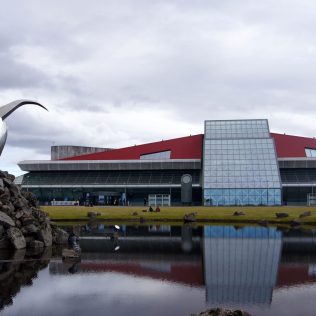Keflavik Airport serves the Icelandic capital, but in fact it’s located on the Reykjanes peninsula a 45 minute drive away from Reykjavik. While some dash straight off to the city, increasing numbers of visitors are realising that there’s plenty to see close to the airport itself. Wild and windswept, in many places unspoilt, this region is one of Iceland’s most interesting. We’d urge you to hang around long enough to explore our picks for the top five things to see close to Keflavik airport.
- Related links: Iceland’s cheap car rental requirements; cheap rental car in Iceland
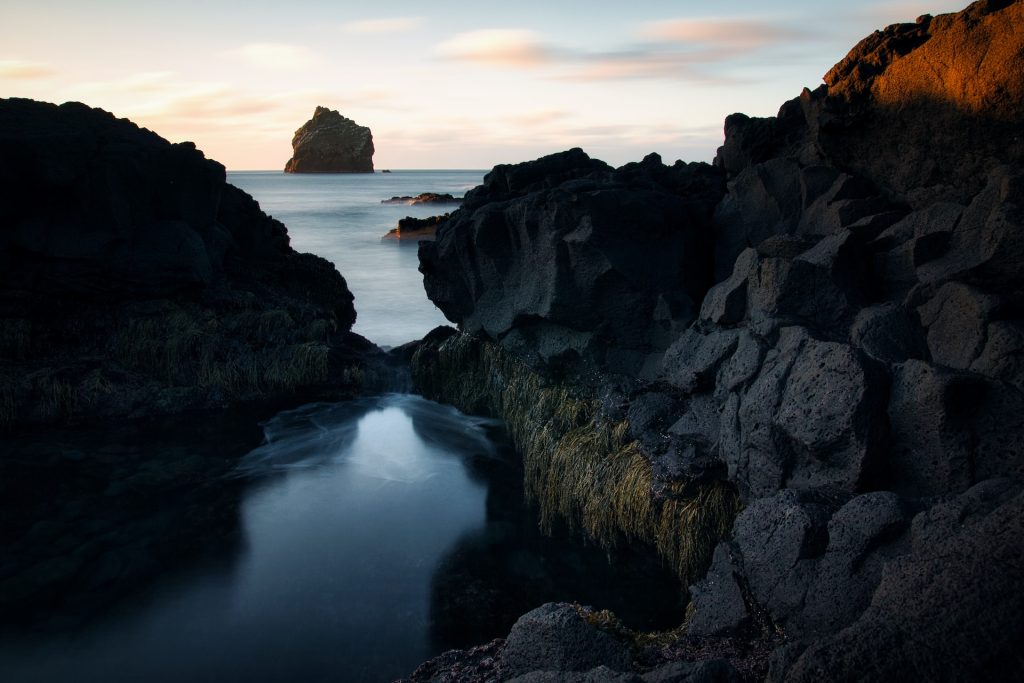
Fagradalsfjall volcano
Is a dormant volcano worth a close-up look? We think so, and this one’s handily located just a short drive from the airport at Keflavik. After a period of inactivity that lasted more than 800 years, this volcano burst into life in March 2021. Lava fountains lit up the air to rival any municipal fireworks display and rivulets of molten orange rock snaked down the hillside altering the landscape forever. It was a captivating sight and one which drew curious tourists in their thousands. Those who were able hiked up the knife-edge ridge of the valley; others took the easy option and flew overhead for a bird’s eye view by helicopter or light aircraft. By September, the volcano fell silent, reawakening briefly the following August to remind us that the show wasn’t over for good. That’s still part of the attraction, knowing that Fagradalsfjall’s active period probably isn’t yet done. But there’s also a majestic beauty to the vast areas of cooled grey lava and the unmistakable yellow stains created by sulphur deposits, which add a photogenic splash of colour to the monochrome topography. It’s a long, challenging hike, but well worth it to see such a breathtaking view.
- You might be interested in reading: Everything you need to know about Iceland’s volcanic eruption
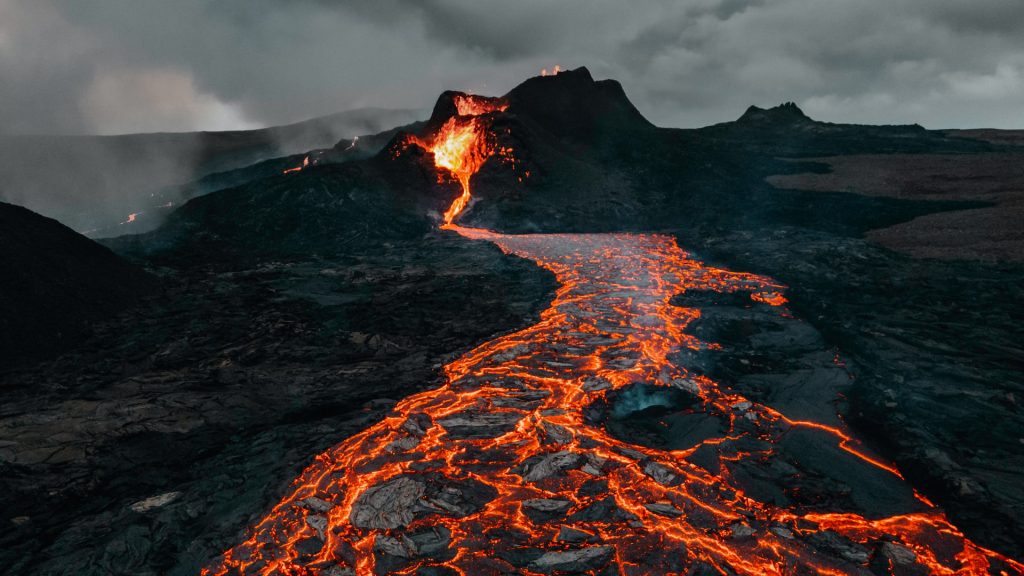
Íslendingur (the Icelander)
Íslendingur isn’t a person, it’s a ship. More precisely, it’s a Viking ship that represents an important moment in Iceland’s history. It’s not original; instead this is an authentic replica of the Gokstad, which when excavated in Norway in 1882 was found to be almost completely intact. Crucially, Íslendingur isn’t simply a heritage piece. When Gunnar Marel Eggertsson finished building this magnificent ship in 2000, he sailed across the Atlantic to New York, just as Leif Eiriksson had done a thousand years before him. As you stand in front of this historic pine and oak vessel, it’s easy to be impressed by his painstaking and meticulous work. Íslendingur measures 23 metres long and more than 5 metres wide, with an 18 metre long mast bearing a massive sail. Once, such ships would have been commonplace. Today, they’re a reminder of the settlers who founded and shaped the nation that would become the Iceland we know today. Fittingly, you’ll find this one in the grounds of Vikingaheimar beside Faxaflói Bay. As you gaze out across the water, it’s hard to imagine how those pioneering adventurers would have felt as they set sail into the unknown.
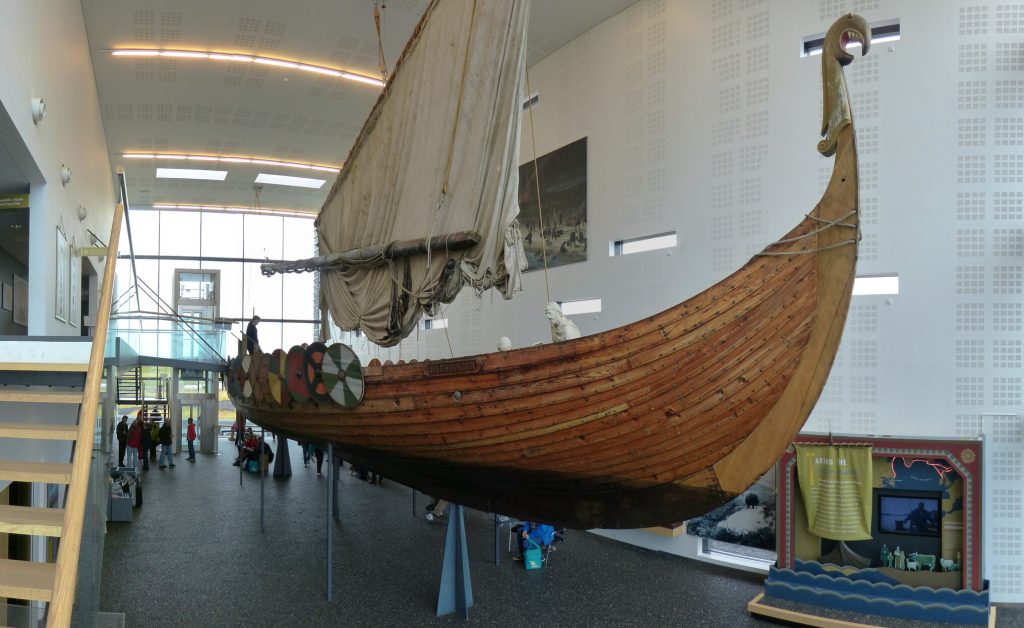
Bridge between Continents
At first the Bridge between Continents looks a little out of place. Like many such structures, it spans what first appears to be a dried up river bed, a sand-filled cleft which seems puzzling in a country that isn’t associated with dry weather. But then you figure out that this isn’t a river after all. Instead, it’s a visible tear in the landscape, tangible proof that Iceland is divided by a rugged plate boundary. Here, the land on which you stand is slowly but unmistakably pulling apart. On one side of the bridge is the North American plate; on the other, the Eurasian. Though you can’t see or feel it, the ground beneath your feet is moving. Step out onto the bridge and in the space of 15 or so metres, you’ll have walked from Europe to North America. Halfway across, where you cross to the other continent, you’ll spot a plaque inscribed “Miðlína, in the footsteps of the gods.” From here, the volcanic terrain of the Reykjanes peninsula and beyond makes sense. Despite its long history, geologically, Iceland is still a young country and the forces that have shaped it over the centuries are still very much in evidence today.
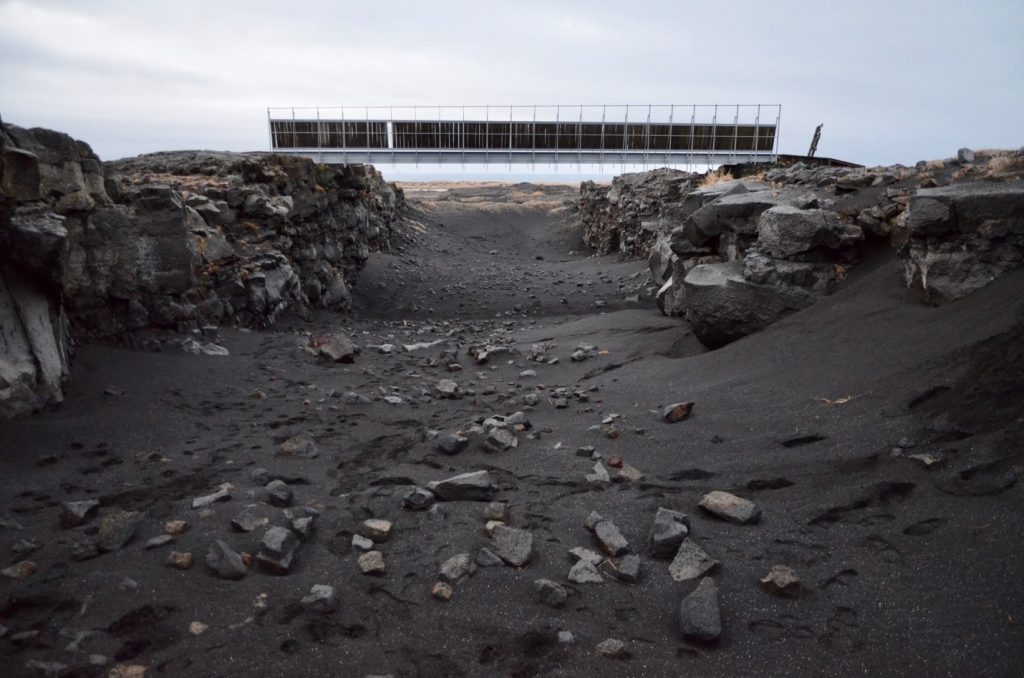
Hafnaberg
The south-western tip of Iceland is under constant attack from the North Atlantic Ocean. Battered by the waves, in places, this rocky shoreline has been sculpted into impressive cliffs. Hafnaberg’s faulted rock face is one of the most impressive sights in the area and forms part of the Reykjanes UNESCO Global Geopark. Wide bands of sheer, smooth rock are interspersed with narrower, jagged stripes; it’s as close as you’ll get in nature to a smocked blouse. Buffeted by gales in this exposed site, remarkable numbers of seabirds make their home in nooks and crevices in the cliff and in the sea stacks that litter the shallows. Guillemots, kittiwakes, fulmars and razorbills are all regularly spotted, making this a must for birdwatchers. Wrap up against the wind for the relatively easy climb up the hill known as Valahnjúkur; from the top, you have one of the best vantage points over the whole area. If visibility’s good, you should be able to pick out Eldey Island in the distance; with luck, you might glimpse a passing seal or whale.
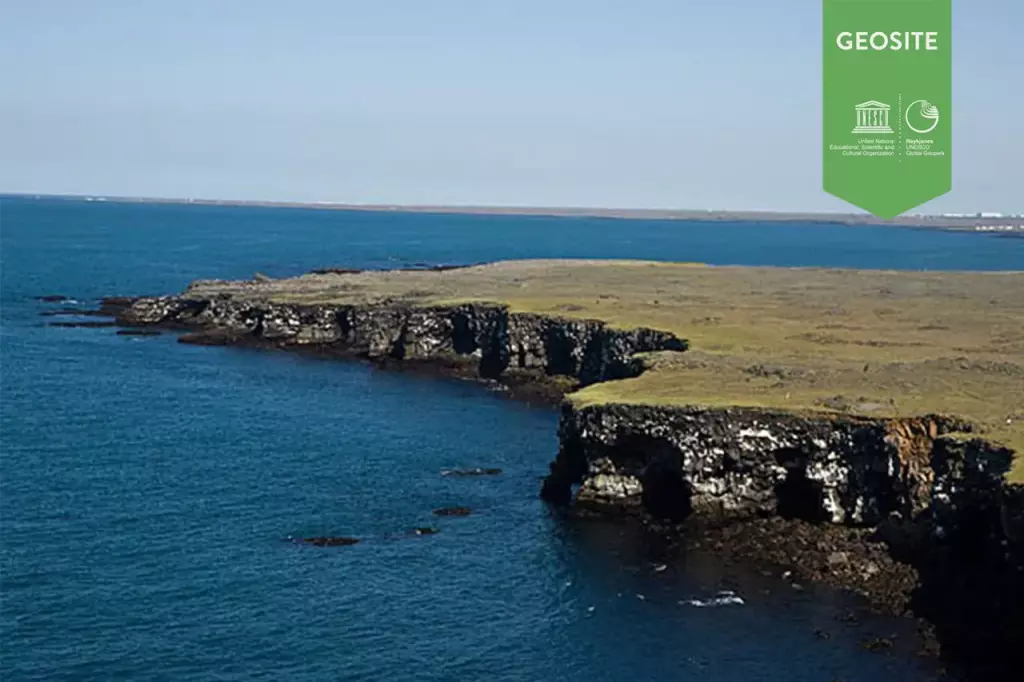
The Blue Lagoon
You might ask what a luxury spa is doing in a roundup of things to see – rather than do – in Reykjanes, but this is no ordinary place. In 2012, the Blue Lagoon was chosen by National Geographic as one of its 25 Wonders of the World. Its unique setting makes this hot water pool as much a treat for the eyes as it is for aching muscles. Yet, on paper at least, it doesn’t exactly stack up: a facility that repurposes waste water from a nearby geothermal power plant wouldn’t excite many of us. In reality, however, the juxtaposition of its milky blue water against the charcoal grey lava rock that surrounds it is simply stunning, even more so when you factor in the steam that forms in the cold air above. Before you grab a towel and slide into the water, take a moment to have a nose around. This is Icelandic resourcefulness at its absolute best, the perfect union of people and nature.
